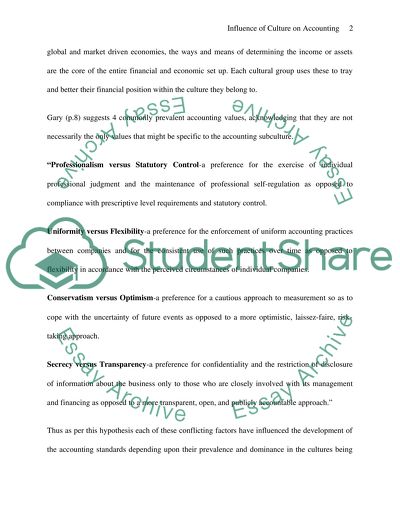Cite this document
(“Influence of Culture on Accounting Essay Example | Topics and Well Written Essays - 2250 words”, n.d.)
Retrieved from https://studentshare.org/miscellaneous/1527374-influence-of-culture-on-accounting
Retrieved from https://studentshare.org/miscellaneous/1527374-influence-of-culture-on-accounting
(Influence of Culture on Accounting Essay Example | Topics and Well Written Essays - 2250 Words)
https://studentshare.org/miscellaneous/1527374-influence-of-culture-on-accounting.
https://studentshare.org/miscellaneous/1527374-influence-of-culture-on-accounting.
“Influence of Culture on Accounting Essay Example | Topics and Well Written Essays - 2250 Words”, n.d. https://studentshare.org/miscellaneous/1527374-influence-of-culture-on-accounting.


